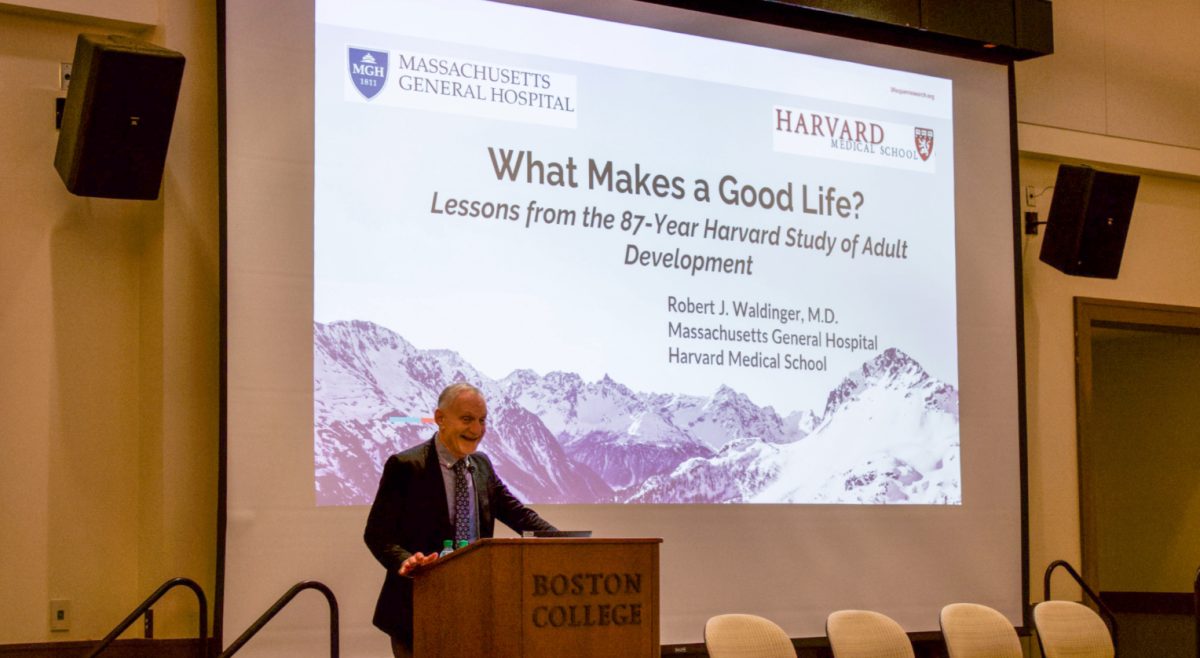The Connell School of Nursing (CSON) at Boston College will welcome its first cohort of students into a new master’s in nurse-midwifery program in May—the first of its kind in eastern Massachusetts.
The program aims to address a growing shortage of obstetric care providers and respond to rising maternal mortality rates nationwide, according to CSON Dean Katherine Gregory.
“One of the first sort of services that gets eliminated is often care for women’s health, and in particular care during labor and birth, pregnancy, labor and birth,” Gregory said. “We’re seeing a real need for midwives to help bridge that gap in care, especially in underserved communities.”
The two-year, full-time program, designed for registered nurses seeking graduate education, will offer mentorship and hands-on experience in midwifery, according to Gregory.
To support this goal, BC received a $1 million grant from the Massachusetts Department of Public Health to form the Birthworker Equity in Education Collaborative, which aims to mentor students, promote health equity, and strengthen midwifery in Massachusetts.
Katharine Hutchinson, women’s health program director and an associate professor of the practice of nursing, said Boston has not had a midwifery education program for two decades—a gap she believes BC is well-positioned to fill.
“We have hundreds of midwives working in the city and in the area, and the closest educational program is out in Springfield, Massachusetts, leaving a huge hole for folks who live in this area to get midwifery education,” Hutchinson said.
Hutchinson emphasized the need to shift the public perception of midwifery.
“There are some folks who have heard that maybe a midwife is something that you have if you want to have a home birth, or maybe a kind of hippie-dippie, white lady in her Birkenstocks,” she said. “But midwifery is much more than that.”
The curriculum will include classroom instruction on BC’s campus and clinical placements at hospitals and health centers throughout the region.
According to Gregory, students will partner with Mount Auburn Hospital’s midwifery practice, as well as locations such as Massachusetts General Hospital, South Shore Hospital, and BC’s Community Health Center Partners.
“The first year of the program, students will be learning about how to take care of patients in the outpatient setting,” Hutchinson said. “The second year, students will be learning about how to take care of patients during their labor and birth.”
In their final semester of the program, Gregory said students will complete a full-time clinical immersion to apply what they learned from preceptors and coursework.
“In the beginning, they’re at the elbow of the preceptor and learning, watching, doing where they can, and then by the end, the preceptor should be at their elbow, watching and making sure that they’ve attained that knowledge and skill set,” Gregory said.
Looking to the future, Hutchinson said she hopes BC will become a hub for both midwifery education and continuing education for practicing midwives to continue providing maternal care.
“I really want BC to be a home where midwifery education and research and excellence in clinical practice can really be sort of located at the School of Nursing,” Hutchinson said. “As the program grows and develops, I really hope that we can remain very firmly rooted in the communities of folks that we’re trying to serve.”
Gregory said CSON’s mission, rooted in Jesuit values, aligns with the goals of midwifery.
“The principles of midwifery care are very much the principles of Jesuit education, cura personalis, caring for the underserved—using your gifts and talents in service to others,” said Gregory. “That is what midwifery is. That is what nursing is.”
According to Hutchinson, midwives provide patient-centered care associated with better health outcomes for parents and the newborns.
“We have this crisis of maternal mortality, where people are dying during their pregnancy care, both during the year postpartum, and we know that increasing access to midwifery care can help address that,” she said. “So it’s a really crucial issue to help with this crisis in maternity care that we have in our country.”
Gregory said the program is part of BC’s broader responsibility to respond and contribute to pressing public health needs.
“Many colleges and universities are not in a position to start new programs like this, and we are,” said Gregory. “We have a responsibility to make this education available, and we’re really excited to bring this to Boston and really bring this to public health.”








